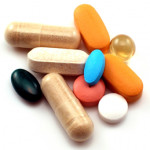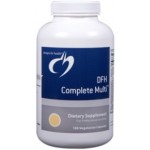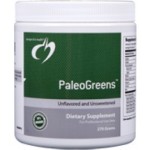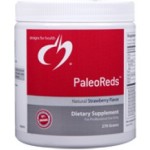 A diet that promotes complete nutrition combined with exercise has been shown to make the genes responsible for obesity and disease less active, even in studies comparing those with identical genes, twins. Phytonutrients, the powerful spectrum of vitamins, minerals, antioxidants and enzymes that allows for proper balance, efficient absorption, and reduction in disease, are only found in fresh produce. It is recommended that we have 7 to 13 servings of colorful fruits and vegetables daily to promote health, and even more with a pre-existing condition, such as cardiovascular disease (16 to 18 servings).
A diet that promotes complete nutrition combined with exercise has been shown to make the genes responsible for obesity and disease less active, even in studies comparing those with identical genes, twins. Phytonutrients, the powerful spectrum of vitamins, minerals, antioxidants and enzymes that allows for proper balance, efficient absorption, and reduction in disease, are only found in fresh produce. It is recommended that we have 7 to 13 servings of colorful fruits and vegetables daily to promote health, and even more with a pre-existing condition, such as cardiovascular disease (16 to 18 servings).
It is always preferable to receive nutrients from food, but too many people are not eating enough fruits and vegetables, and worse, turning to nutrient-devoid processed foods out of convenience. This is when supplementation becomes necessary to maintain adequate nutrition. No pill is going to provide the same full-spectrum benefits of real, fresh food, but if your lifestyle requires you to supplement, it is crucial to choose a minimally-processed whole food-based product and pay attention to the following, or you may be doing more harm than good.
- Synthetic vitamins are incomplete, fractionated forms of nutrients, and may actually increase oxidative stress and the risk of disease. Always choose a whole food-based supplement and never synthetic so your body knows how to use it.
Synthetic, man-made, vitamins, are lone, isolated forms not proven to be effective or safe. The Journal of the American Medical Association released a study in 2011 that found vitamin E supplementation increased the risk of prostate cancer in healthy men, the opposite of what they expected upon launching since vitamin E is an antioxidant that reduces oxidative stress thereby reducing cancer risk. The problem was that the men were receiving a synthetic form of the vitamin which only included one molecular form of vitamin E, alpha-tocopherol. When found in nature, vitamin E is composed of alpha-, beta-, and gamma- tocopherols. Since vitamins and forms of vitamins work synergistically, having too much of one form interferes with the body’s ability to utilize the other important forms. In the same way, if you have a lot of one type of B vitamin, it will likely affect the absorption and balance of other B vitamins. Nutrition is all about balance.
Beta carotene is the precursor to vitamin A, another antioxidant. Many studies have found that when supplemented with the synthetic version, it increases cancers. A multivitamin should also contain natural beta carotene rather than vitamin A preformed because it can interfere with vitamin D absorption. Synthetic forms of some vitamins have even been found to prevent the adaptive, beneficial effects of exercise in endurance athletes.
Similar results have been found in cases of folic acid (vitamin B9) supplementation. Natural folates from leafy vegetables have been found to decrease cancer risk, even at high levels, while synthetic folic acid actually increases risk. The introduction of folic acid-fortified foods in 1998 coincided with a 19% decrease in spina bifida. However, man-made vitamins are unstable, unpredictable, and not taken in conjunction with all the enzymes and co-factors found in nature necessary to be properly metabolized. Folic acid may build up in the body causing free radical damage to accumulate and create an environment that cancer likes.
To be continued….
I hope this week I’ve managed to drive home that you should never ever risk choosing a synthetic vitamin. Part II will be upcoming next time with the four remaining factors to consider for when choosing vitamins and supplements. If you haven’t, sign up for the O’Maley Mobile Wellness newsletter, so you don’t miss it!
UPDATE: Sorry, summer found me a little disorganized and I ended up taking a break from writing. I promise, the next part is upcoming. – Dr. O
Related Supplements I Recommend:
 DFH Complete Multivitamin is a full-spectrum multivitamin with Albion chelated minerals for maximum absorption and bioavailability. This powerhouse multivitamin supplies supporting nutrients not normally found in regular multis, such as alpha lipoic acid, TMG, fruit bioflavanoids, choline, and inositol. This formula also contains high gamma tocopherol vitamin E, high levels of all B vitamins, including our proprietary NatureFolate™ blend of active isomer naturally-occurring folates, and natural mixed carotenoids. This copper and iron free version is appropriate for men and postmenopausal women.
DFH Complete Multivitamin is a full-spectrum multivitamin with Albion chelated minerals for maximum absorption and bioavailability. This powerhouse multivitamin supplies supporting nutrients not normally found in regular multis, such as alpha lipoic acid, TMG, fruit bioflavanoids, choline, and inositol. This formula also contains high gamma tocopherol vitamin E, high levels of all B vitamins, including our proprietary NatureFolate™ blend of active isomer naturally-occurring folates, and natural mixed carotenoids. This copper and iron free version is appropriate for men and postmenopausal women.
 PaleoGreens™ is the great tasting Designs for Health greens food made with over 90% organic ingredients. The vegetable, fruit, and berry ingredients are brightly colored and non-oxidized, as the powders are protected from heat, UV light and moisture from start to finish. These greens have a Paleo profile; they contain no grains, legumes, alfalfa, corn, gluten, fructose or artificial sweeteners. Unlike other greens products, we never add inexpensive fillers or bulking agents such as fiber, whole grasses, pectin, rice bran, and/or flax, which account for 40% to 60% of the content of most other greens products. We work closely with our certified organic growers to ensure the optimal preservation of enzymes and beneficial phytonutrients in PaleoGreens™ ingredients. These ingredients are harvested at their peak of potency and immediately concentrated and dried by utilizing proprietary cool-temperature processes that preserve their energetic and nutritional integrity.
PaleoGreens™ is the great tasting Designs for Health greens food made with over 90% organic ingredients. The vegetable, fruit, and berry ingredients are brightly colored and non-oxidized, as the powders are protected from heat, UV light and moisture from start to finish. These greens have a Paleo profile; they contain no grains, legumes, alfalfa, corn, gluten, fructose or artificial sweeteners. Unlike other greens products, we never add inexpensive fillers or bulking agents such as fiber, whole grasses, pectin, rice bran, and/or flax, which account for 40% to 60% of the content of most other greens products. We work closely with our certified organic growers to ensure the optimal preservation of enzymes and beneficial phytonutrients in PaleoGreens™ ingredients. These ingredients are harvested at their peak of potency and immediately concentrated and dried by utilizing proprietary cool-temperature processes that preserve their energetic and nutritional integrity.
 Physicians and nutritionists are recommending a diet rich in brightly-colored fruits and vegetables because they contain phytonutrients that act as antioxidants to ward off free radical damage. From polyphenols in apples to natural vitamin C from the Amazonian acerola cherry, PaleoReds™ combines over a dozen fruits and vegetables and their phytonutrients from the red/purple group to help reduce the risk of common chronic diseases and premature aging. For our PaleoReds™ powder, Designs for Health has chosen the highest quality, antioxidant-rich ingredients, with over 80% being certified organic and all of which meet the stringent standards. The grape skin extract is standardized to resveratrol and the pomegranate is standardized to ellagic acid. This great tasting fruit and berry formula is ideal for patients who need antioxidants, yet are sensitive to synthetic vitamin C made from corn.
Physicians and nutritionists are recommending a diet rich in brightly-colored fruits and vegetables because they contain phytonutrients that act as antioxidants to ward off free radical damage. From polyphenols in apples to natural vitamin C from the Amazonian acerola cherry, PaleoReds™ combines over a dozen fruits and vegetables and their phytonutrients from the red/purple group to help reduce the risk of common chronic diseases and premature aging. For our PaleoReds™ powder, Designs for Health has chosen the highest quality, antioxidant-rich ingredients, with over 80% being certified organic and all of which meet the stringent standards. The grape skin extract is standardized to resveratrol and the pomegranate is standardized to ellagic acid. This great tasting fruit and berry formula is ideal for patients who need antioxidants, yet are sensitive to synthetic vitamin C made from corn.
Resources:
Vitamin E and the Risk of Prostate Cancer: The Selenium and Vitamin E Cancer Prevention Trial.
Folate and cancer: How DNA damage, repair and methylation impact on colon carcinogenesis.
Dietary supplements and mortality rate in older women: the Iowa Women’s Health Study.
Multivitamin use and breast cancer incidence in a prospective cohort of Swedish women.
Should I Worry About Taking Supplements? – Alliance For Natural Health
Why You Should Not Stop Taking Your Vitamins – Mark Hyman, M.D.
Nutrition Tips: Folic Acid: Killer or Cure-All? – Mark Hyman, M.D.
Don’t Take Your Vitamins! – Jonny Bowden
When Not to Take Your Multivitamin – Joseph, Mercola, M.D.

